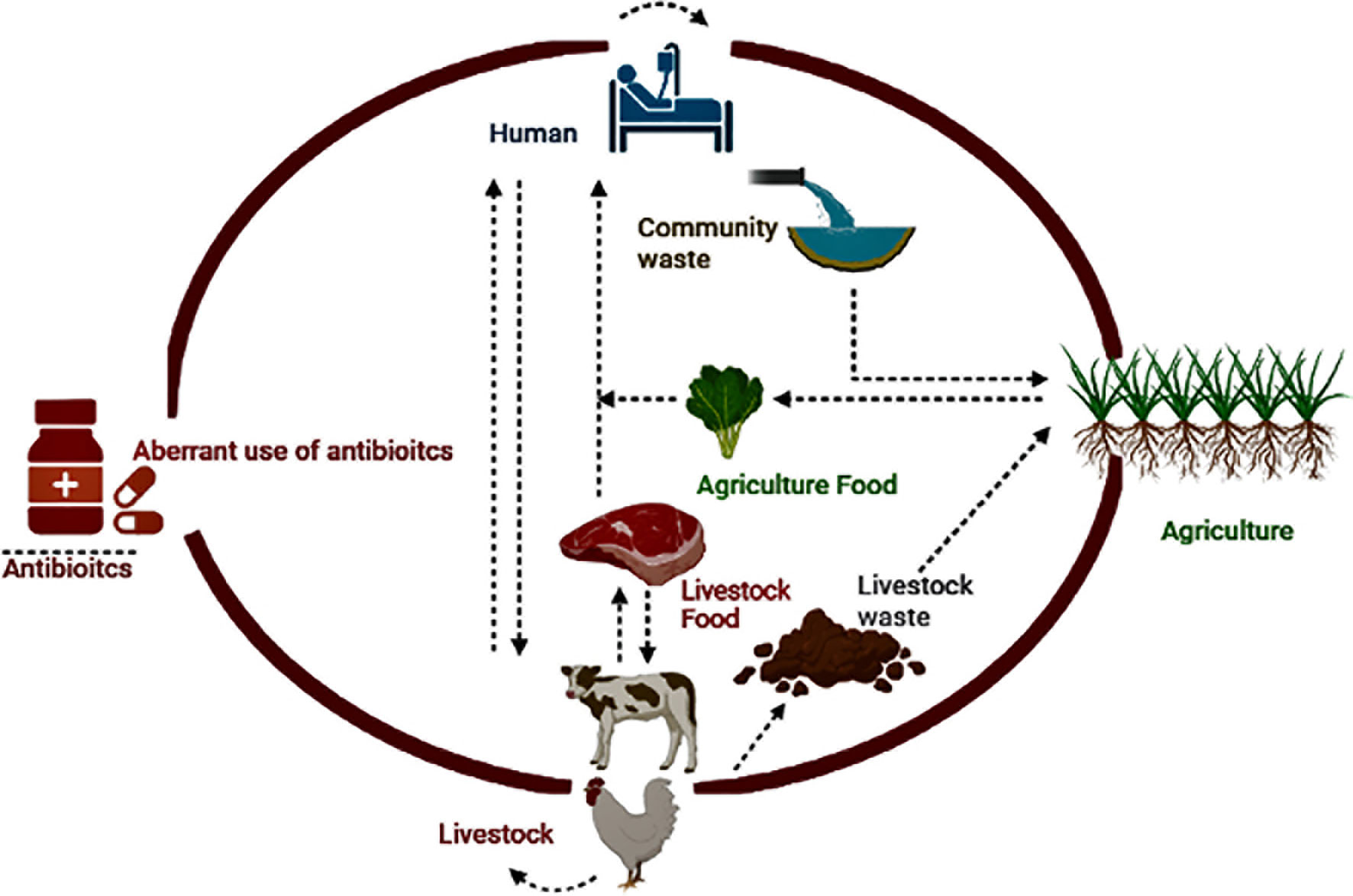Antimicrobials have been a significant part of human and animal health care, used for both therapeutic and prophylactic purposes. The problem arises when these antimicrobials are overused or misused. Over time, some microorganisms develop resistance to these antimicrobials, rendering the treatments ineffective. The widespread use of particular antimicrobials in agriculture is concerning, leading to the evolution of highly-resistant microorganisms that pose significant health risks.
Antimicrobial resistance, a significant global health concern, occurs when microorganisms such as bacteria, fungi, viruses, and parasites develop resistance to the medicines used to treat the infections they cause. This happens primarily due to irresponsible and excessive use of antimicrobials in various sectors such as agriculture, livestock, and human medicine. The importance of addressing antimicrobial resistance cannot be understated as it threatens the effective prevention and treatment of a myriad of infections.
A multidisciplinary and integrative ‘One Health’ approach is deemed as the optimal strategy to address this intricate global issue, linking human, animal, and environmental health. This approach bridges various disciplines to provide comprehensive solutions for health issues affecting these three components of our ecosystem. AMR has severe implications on individuals’ well-being, urging us to perceive and tackle it through different disciplines to streamline it within the One Health framework. Recognizing the interconnection between humans, animals, and their shared environment is a critical step in addressing the escalation of AMR.
Preserving the effectiveness of antibiotics necessitates a harmonized global approach.
The One Health approach believes in enhancing public awareness about the potential harm resulting from overuse and misuse of antimicrobials.
It encourages the adoption of improved and stricter hygiene measures and infection control, reducing the unnecessary use of antimicrobials in agriculture and preventing their spread into the environment.
Moreover, it advocates for promoting new and rapid clinical diagnoses, developing and utilizing vaccines and effective alternatives, further recognizing and increasing the number of professionals working with infectious diseases, and fostering a global coalition for real action against AMR.
The fight against AMR also involves strengthening global surveillance of drug resistance, which needs a clear understanding of antibiotic consumption in humans and animals, current rates of antibiotic resistance, and the molecular basis of AMR. Effective monitoring can guide various health sectors in countering the spread of resistance and contribute to a global image of AMR to direct global health governance and accountability.
As we navigate the era of global health, it is apparent that the One Health approach stands out as a beacon of hope against the looming threat of Antimicrobial Resistance. As AMR continues to escalate, economies, healthcare systems, and livelihoods are at stake. Indeed, the problem of AMR is an urgent global indictment calling for an immediate consensual response. This compels us to rethink and overhaul our current strategies at every level – from consumption and prescription of antimicrobials to their use in food production and environmental systems. Accelerated innovation, sustainable investment in research and development, and stringent control of the types and amounts of antimicrobials used in medical practice, agriculture and livestock are needed.
The combat against AMR is a battle that requires unity and action from all sectors of society. As such, public education campaigns are needed to raise awareness and promote responsible practices surrounding antimicrobial use. Practitioners in both human and animal health sectors should be prudent in antimicrobial prescriptions, advocating for use only when necessary and employing best practices. In conclusion, the complexity of Antimicrobial Resistance requires a comprehensive, robust, and responsive approach – one that recognizes our global interconnectedness and interdependence, and places equal emphasis on animal, human, and environmental health.
In this pivotal moment in human history, a One Health approach is no longer just an option – but an essential path we must adopt, to safeguard our collective health and future.
Reference:
Velazquez-Meza ME, Galarde-López M, Carrillo-Quiróz B, Alpuche-Aranda CM. Antimicrobial resistance: one health approach. Veterinary World. 2022 Mar;15(3):743. https://tinyurl.com/88hceeux
Collignon PJ, McEwen SA. One health—its importance in helping to better control antimicrobial resistance. Tropical medicine and infectious disease. 2019 Jan 29;4(1):22. https://tinyurl.com/3spzpdxv
Hernando-Amado S, Coque TM, Baquero F, Martínez JL. Defining and combating antibiotic resistance from One Health and Global Health perspectives. Nature microbiology. 2019 Sep;4(9):1432-42. https://tinyurl.com/4ftz86ra
